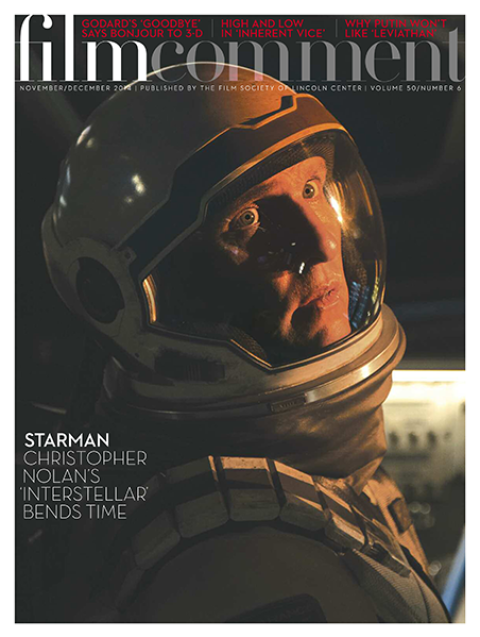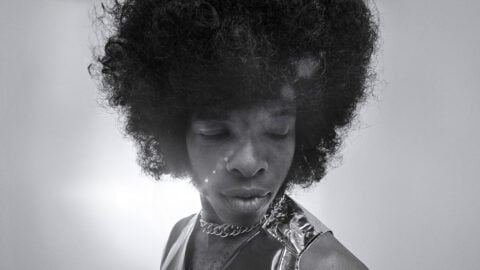Far too many documentaries are judged on the strength of their advocacy: if people agree with what they hear about global warming or processed food or bears, it’s a good movie. Certainly no one is going to be left feeling very happy about what CITIZENFOUR has to say about government abuse of power, but Laura Poitras’s film about National Security Agency whistleblower Edward Snowden (and much else besides) is more than just an unsettling bulletin from the blurry front lines of American intelligence’s surveillance campaign. It’s a stirring, sophisticated work of cinema verité, a virtuoso feat of high-tension interview editing, a jaw-dropping act of civil disobedience, a riveting psychological record of an informant-journalist encounter, a space-time-collapsing ride into the modern technological matrix, and maybe most viscerally, an instant classic of paranoid cinema.

The bare facts it presents are easy to grasp, though no less incredible. In early 2013, Poitras was approached by Snowden to serve as a conduit for his data-dump of revelations from the most secret echelons of the NSA. A relationship of trust developed and when the filmmaker finally met Snowden face-to-face that summer, she brought her camera along. We learn about the indiscriminate, illegal dragnet of U.S. government surveillance through both CITIZENFOUR’s extended centerpiece—mostly Poitras, journalist Glenn Greenwald, and Snowden sequestered in a Hong Kong hotel room—and its bookended clips from lectures and press conferences.
While much of what Snowden talks about had previously been aired, Poitras’s nonfiction thriller restores the shock of the new to his exposé through its antsy getting-to-know-you build-up and the palpable sense of danger as the clock ticks, Snowden’s absence back home is detected, and Greenwald begins publishing articles about the revelations. It’s claustrophobic in this lived-in room, but the entire world comes to feel the same way—as if the NSA has been lifting the roofs off houses across the country and peeking right in. When the phone rings, you can feel everyone in the room looking at one another apprehensively; when the hotel’s fire alarm goes off, you wonder if someone, somewhere made it happen who does not mean well.

And that’s the hard adjustment that CITIZENFOUR demands: here is a nonfiction work that illustrates just how many of the paranoid fantasies of airport novels and movie thrillers are, in fact, part of standard operating procedure for the U.S. government. It’s not science fiction: they are watching; decisions do go All the Way to the Top; and when you have to type in your password in an insecure environment, you’d better do it underneath a blanket—as Snowden does at one point. But as we see Snowden learn that investigators have been harassing his girlfriend—from whom, in an act of self-sacrifice rivaling anything in the movies, he has concealed his whistleblowing plans—the risks Snowden took become terrifyingly real. As the secrets go out into the world, we wonder what happens when Snowden goes out, too.
But CITIZENFOUR—its title taken from the nom de plume Snowden used in his first communications with Poitras—doesn’t need to hype its story, or its presentation. Snowden himself is almost disorientingly nondescript, a pale young guy you maybe knew in college, with a soft North Carolina accent and some fuzz on his chin. Indeed, Poitras herself remains unseen, making her more a figure of mystery, crossing the globe to ferry these secrets to us; Snowden, for all his triple-codename-laced access and idealistic pronouncements about principled opposition to tyranny, appears vulnerable and exposed enough to be any of us. He isn’t—far from it—but in the intensity of his experience and shock of his revelations, we are made freshly aware of what we might take for granted: our liberties, and their fragility in a world that’s becoming ever more complicated.








